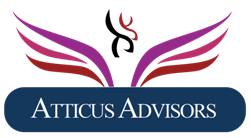Economic downturns have a way of separating reactive businesses from resilient ones. In 2025, with early signs of contraction already surfacing in the U.S. economy, founders and co-founders face a crucial question: How do you continue to grow—or even stabilize—when headwinds intensify?
While the headlines often focus on macro forces, seasoned entrepreneurs know that success during economic slowdowns lies in decisive, internal shifts. It’s not just about surviving—it’s about repositioning your business to thrive in a new context. Below are three core moves that every founder should be making in today’s environment, drawn from real-world leadership playbooks.
1. Shift from Growth Mode to Health Mode
In times of expansion, companies often chase scale. But in downturns, the focus must pivot to organizational health—financial, operational, and cultural.
That means:
- Streamlining your cost structure without undercutting long-term capability
- Reassessing every project, tool, and expense through the lens of ROI
- Reinforcing team morale by overcommunicating goals and expectations
Think of it not as downsizing but rightsizing for resilience. This isn’t about stalling momentum—it’s about reallocating your resources toward what matters most.
2. Deepen, Don’t Dilute, Customer Relationships
Customer budgets shrink during downturns. But their need for solutions doesn’t disappear—it sharpens.
Rather than chasing new segments or product pivots without validation, double down on your existing customer base. Understand how their pain points have evolved. Where are they cutting back? What’s suddenly more urgent?
Strengthen your customer intelligence. Provide more value per interaction. Reframe your offering to speak directly to what they’re facing today—not what made sense a year ago.

3. Lead with Purpose, Not Panic
Uncertainty often triggers knee-jerk reactions—cutbacks, hiring freezes, or tactical pivots done out of fear. But smart leadership in downturns starts with clarity of purpose. That includes:
- Reaffirming your mission internally
- Making deliberate, data-informed choices (not just “safe” ones)
- Communicating calmly and consistently with your team, investors, and stakeholders
Your role as a founder isn’t just to navigate your business—it’s to model stability in uncertain waters. That confidence can become your strongest currency.
Rethinking Resilience in 2025
Every downturn creates new playing fields—and new players. While it’s tempting to go into defense mode, the truth is, strategy beats survivalism. The founders who use this time to refine their value, rethink relationships, and lead with clarity are the ones who’ll emerge with a stronger business and deeper market position.
